![]()
![]()
![]()
![]()
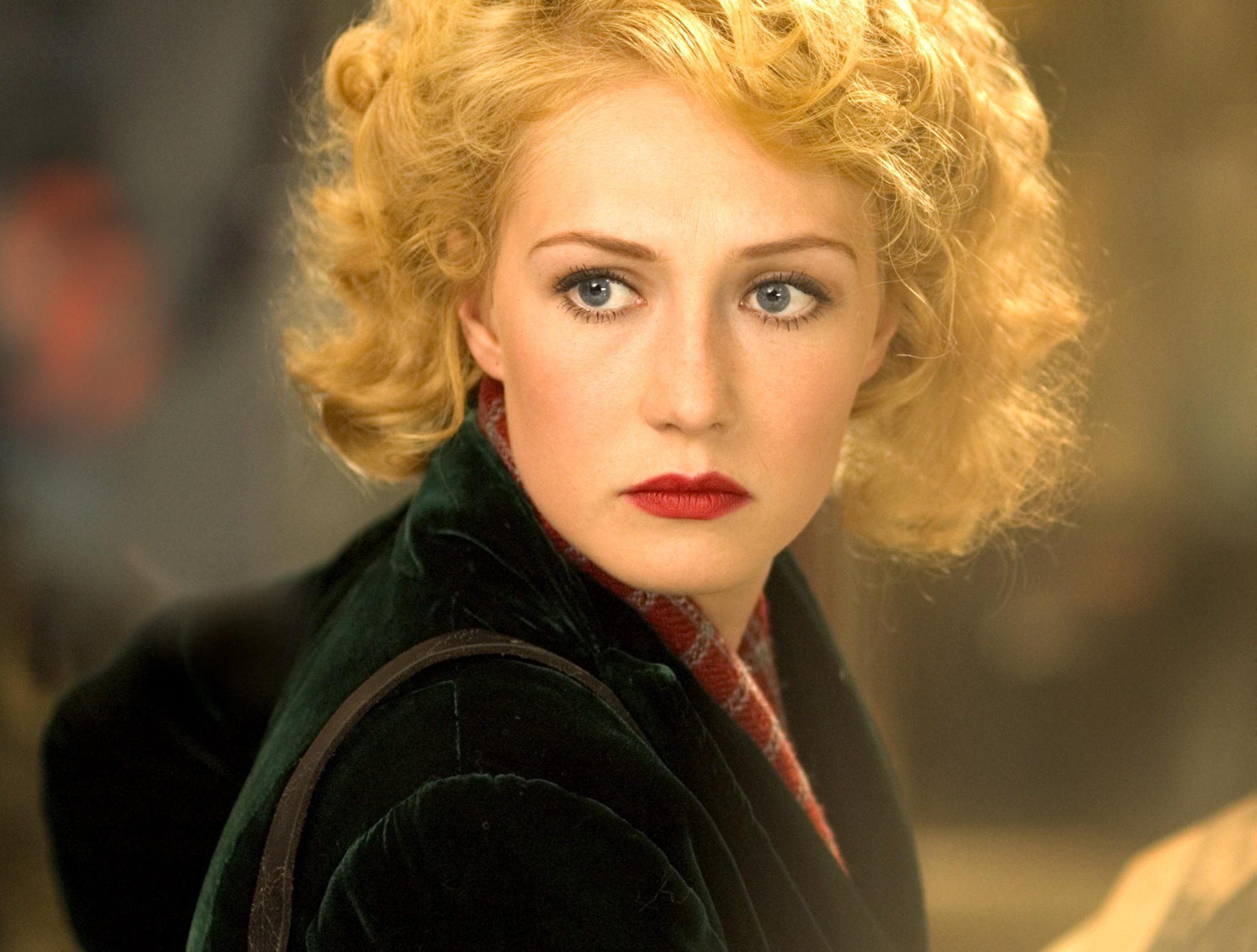
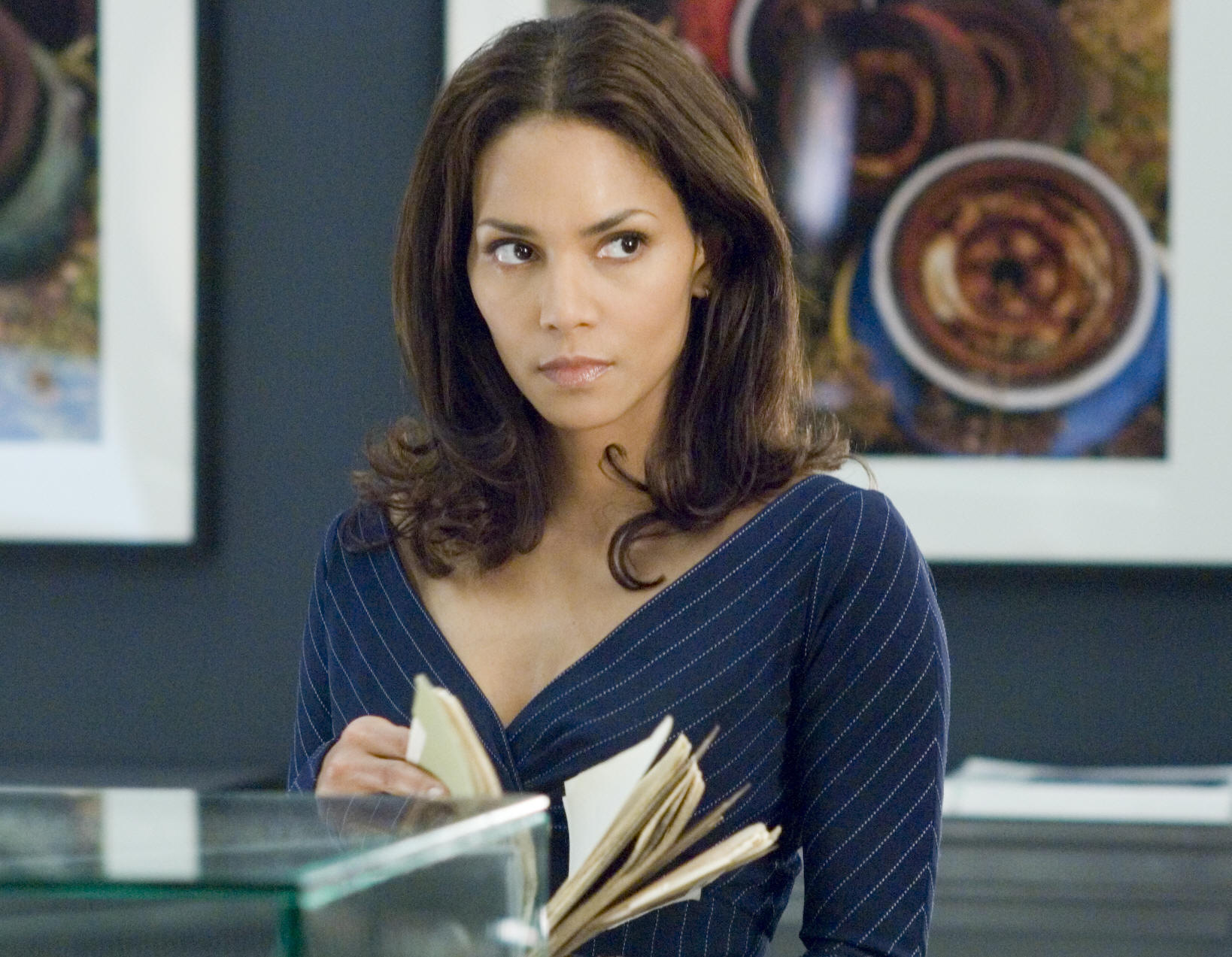
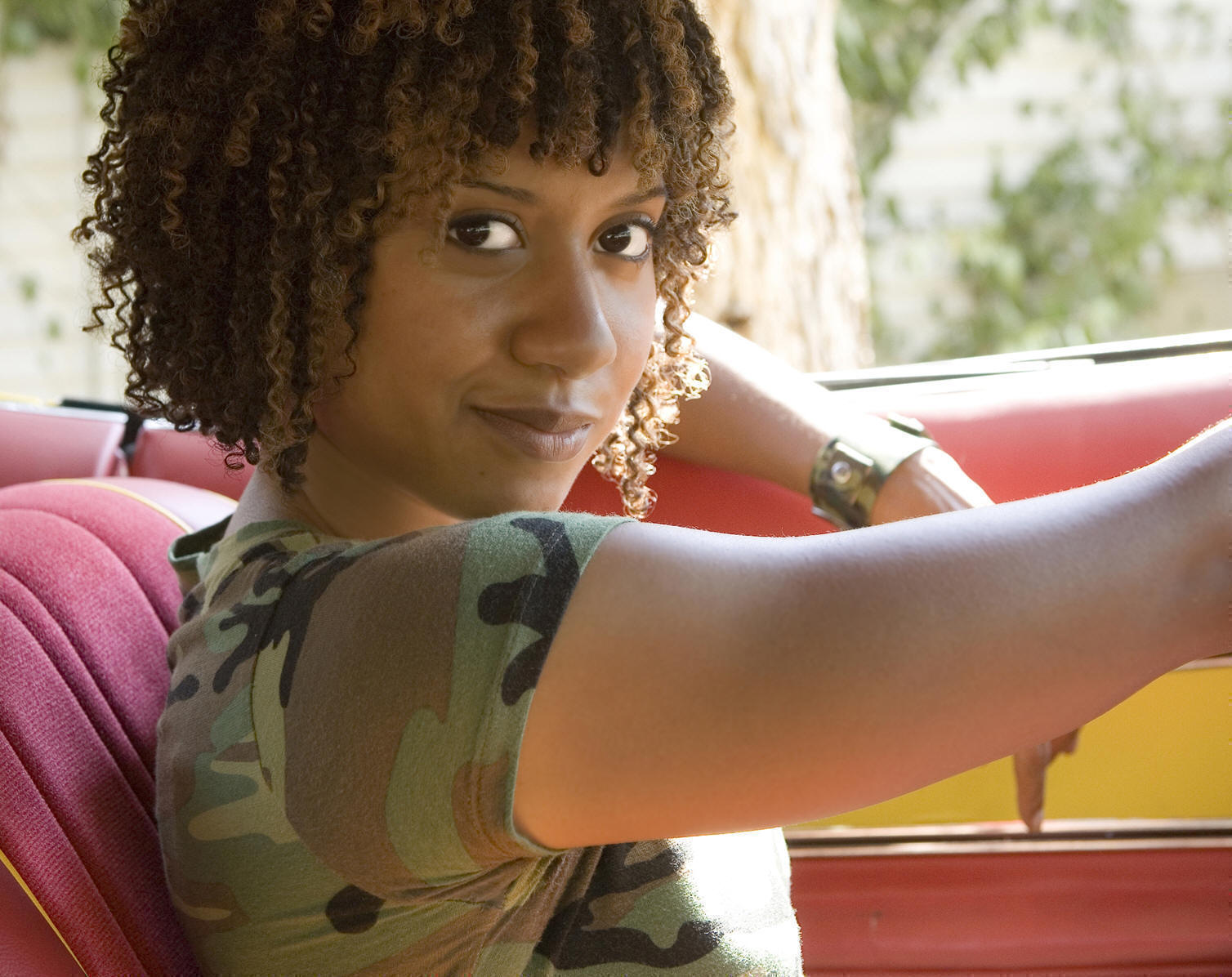
Flying high, flying low and riding in cars without boys: Heroines
and anti-heroines abound in recent big screen portrayals to hit theaters in
America and elsewhere across the globe. (Clockwise from top left, Carice
Van Houten in "Black Book", Halle Berry in "Perfect Stranger", Connie Nielsen in
"The Situation", and Tracie Thoms in "Death Proof", part of the double-bill
feature film event movie "Grindhouse." (Photos courtesy clockwise: Sony
Pictures Classics; Sony Pictures; Shadow Distribution; Dimension Films/The
Weinstein Company)
Women make a big impression on the big screen in recent films that have been
playing in North America and in several other countries of late. The women
have sex appeal, they are rough around the edges, they are heartbreakers,
loners, assassins, revenge-seekers, saviors and spies. They are doing
things their way on their terms.
In "Planet Terror" (the first half of the "Grindhouse" double feature that has
fizzled at the U.S. box office) Rose McGowan saves the day as a one-legged
assassin. Correction: Miss McGowan's character Cherry Darling has two
legs -- one of which is an AK-47 rifle -- which dispenses deadly rounds of heat
in rapid-fire fashion. Like a sexy witch on an invisible broomstick,
Cherry flies through the air with the greatest of ease, a Hell's Angel of sorts,
reborn in heaven and deposited from there to sort out the kind of anarchy and
decay on Earth that is found exclusively in Troma movies. And she
succeeds. Pulsing with sensuality and irony, McGowan gives Cherry a
comical, sympathetic, heroic yet unsentimental bent. For sure, Cherry
isn't your "Titanic" Kate Winslet heroine of ten years ago, but she gets the job
done, even if she embarks on a one-woman killing spree in the process.
Cherry Darling is a character that is a clear parody or caricature of women in
1960's and '70's America grindhouse-type films, or pulp films. Her antics
or her character are not to be taken too seriously. Some other characters
however, arguably were spawned as a product of their time in history or came out
of the times. Foxy Brown, a film character who was seen by some as a
figure of empowerment and positive affirmation for American blacks who went to
the movies in the early and mid-1970's, featured in several so-called
"exploitation" films. Foxy appeared to be modeled after Angela Davis, the
political figure, activist, author and freedom fighter. Pam Grier played
the Foxy character in several films, and her character was seen by some as a
parody, or worse, and insult, and to others as a diminishment or derivation of
Melvin Van Peebles' politically galvanizing Sweet Sweetback character from his
seminal 1971 film "Sweet Sweetback's Baaadassss Song". Pam Grier went on
to play the title role heroine in Quentin Tarentino's "Jackie Brown" in 1997.
The second film of the "Grindhouse" set also features women making bold and
brave moves. In "Death Proof", first Sydney Tamiia Poitier (the daughter
of the legendary Sidney Poitier, whose own Mister Tibbs character galvanized
film-going blacks in the 1960's), then Tracie Thoms, Zoe Bell and Rosario
Dawson, seek vengeance against Kurt Russell, who plays Stuntman Mike, a
psychotic car driver who believes in both the need for speed (at 200mph) but
also in the need to kill. If speed kills, then Mike has thrilled.
It's just that the trio of women who finally confront him are casual everyday
girls next door. Or so Mike thinks. They are Charlie's Angels in
waiting -- or precisely like three women who failed to make the cut at the
audition for the film "Charlie's Angels" because they curse far too much.
But with the beauty and astuteness of this lively trio -- and the fact that they
pack a punch, a kick and a wallop -- the original Charlie's Angels of television
(Kate Jackson, Farrah Fawcett Majors --at the time-- and Jaclyn Smith) have
nothing on them.
Nor, for that matter, do Thelma and Louise.
And speaking of that fated film duo, it was not long ago in America when some
men within the United States were feeling threatened by the antics of the
characters played by Geena Davis and Susan Sarandon (both of whom were
Oscar-nominated for their roles in the film, and both of whom went on to win
Oscars in later films.) There were complaints that the men in "Thelma &
Louise" were depicted as idiots, buffoons and just plain no-good weasel rascals.
The 1991 film featured some men who had a modicum of intelligence (Harvey
Keitel's police detective character), but all the men were seen not only through
the main characters' eyes (and the film's Oscar-winning scriptwriter Callie
Khouri's) but also via the vision of male director Ridley Scott.
(Incidentally, it was Scott, and then later James Cameron respectively, who
fashioned Sigourney Weaver's heroism as Ripley in the first two "Alien" films.)
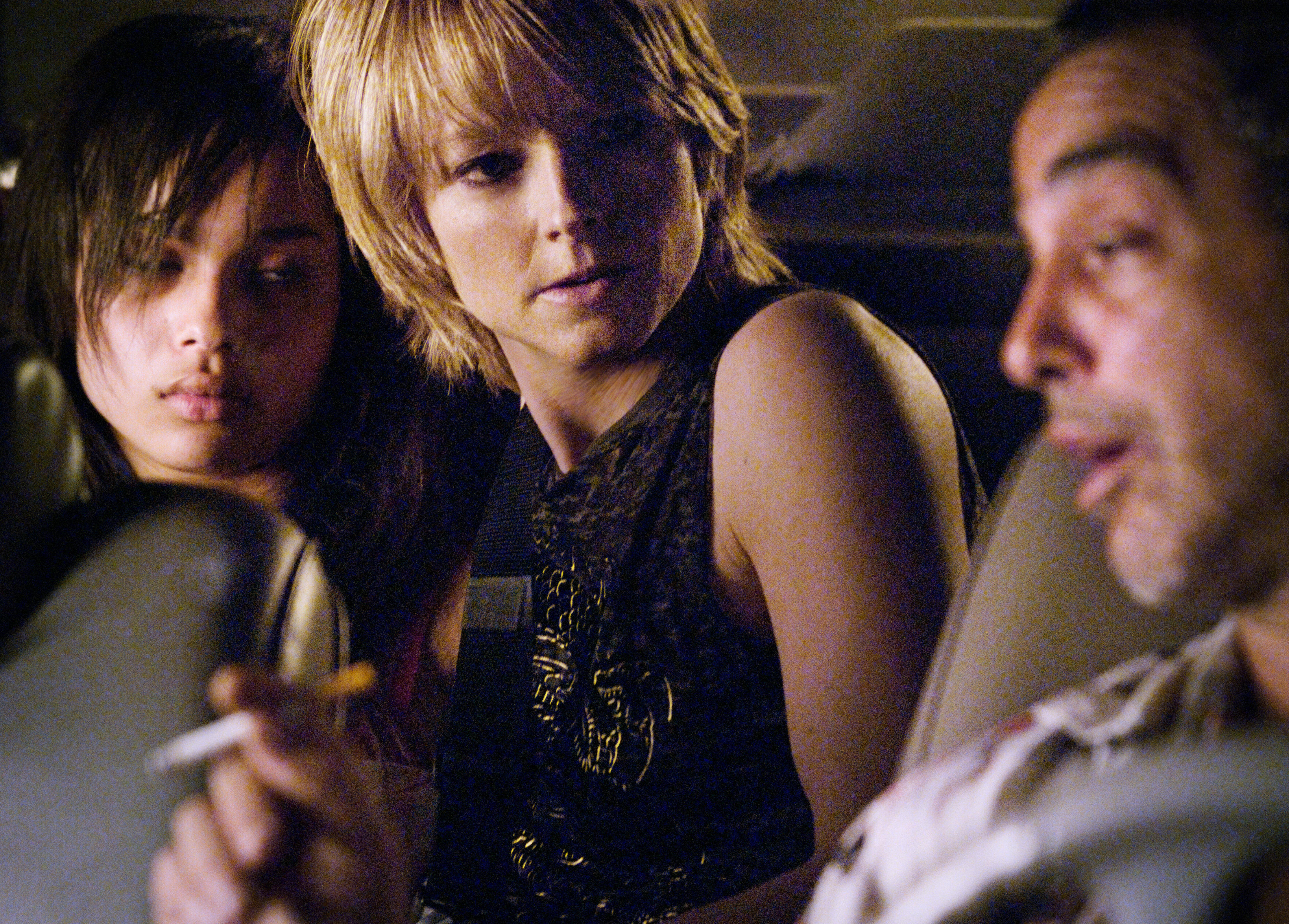
Scared hero, not: Jodie Foster as a vigilante in the upcoming
"The Brave One", opening in North America in September. (Photo: Warner
Brothers)
Conversely, some women felt affronted by the women portrayed in Nancy Meyers'
films "What Women Want" and "Something's Gotta Give." Especially in the
case of "Something's Gotta Give", some movie-going women were heard to say
things like, "that film was a slap in the face to women over 35 everywhere."
The director Meyers also wrote both films. Where the issue of heroine are
concerned, the women in those films however, were not necessarily seen as
heroines per se, any more than the character Beloved (played by Thandie Newton)
in Jonathan Demme's underrated 1998 film of the same name (based on Toni
Morrison's best-selling novel) was. If anything, they were damsels in
emotional distress.
There are other 2007 releases that while not approaching the visceral, physical
heroine of Luc Besson's "La Femme Nikita" played by Anne Parillaud in the 1991
film, or the revenge-minded women who violently avenge their own horrific
violations at the hands of men in "Baise-Moi" (2000), have women who not only
assert themselves but do it with command and authority. (Demi Moore's "G.I.
Jane", another film directed by Ridley Scott, attempted to defy male
expectations of a woman in the rough and tumble world as a U.S. marine. On
screen, Ms. Moore's character clearly did, but male movie-goers were nonplussed.
The film did not especially well around the globe.)
In the worldwide blockbuster hit "300" Lena Headey's Queen of Sparta character
literally demonstrates that the way to a man's heart is through his stomach, as
she drives a stake through the stomach of the scheming and nefarious character
played by Dominic West. The Queen stands her ground as both a monarch and
a mother while her onscreen husband Gerard Butler is off doing the fighting in
the battle to save Thermoplylae from the overwhelming onslaught of Persian
forces. She survives the attack on her virtue, maintaining a resolution
and strength that isn't necessarily authentic within the confines of the
comic-book epic film by Zack Snyder, but is intended as seriously as Mr.
Snyder's intent to deliver a grand motion picture spectacle is.
Another heroine is the multi-faceted character of Rowena, played by Halle Berry
in the film "Perfect Stranger", which recently opened in the U.S. and Canada
(April 13.) She is a journalist who investigates the murder of her
childhood friend, and she comes up against several unknown entities. She
has to lock intellectual and sensual horns with Harrison Hill (Bruce Willis), an
executive and playboy whose marriage isn't necessarily as rosy as appearances
suggest. The end results are quite surprising and Miss Berry's character
is left standing, but in ways that wouldn't have seen possible given the way
James Foley's film starts. In comparison, Joel Schumacher's "Veronica
Guerin" (2003) saw Cate Blanchett play the real-life journalist whose name
serves as the film's title and as a woman serves a dual role: both as a heroine
and as a martyr to journalists everywhere. Guerin exemplified courage in
real-life, bravely and intrepidly doing her job in adverse circumstances -- and
was murdered in the process -- and Blanchett captures that fortitude and
toughness on screen in her film portrayal. Speaking of journalist
portrayals, Connie Nielsen is remarkable as Anna Molyneux, an American
journalist risking life and limb in Iraq while trying to grasp and understand
the quagmire of the current ongoing conflict there, while getting to know the
ordinary everyday citizens of Iraq, in "The Situation", directed by Philip Haas,
now playing in various American cities.
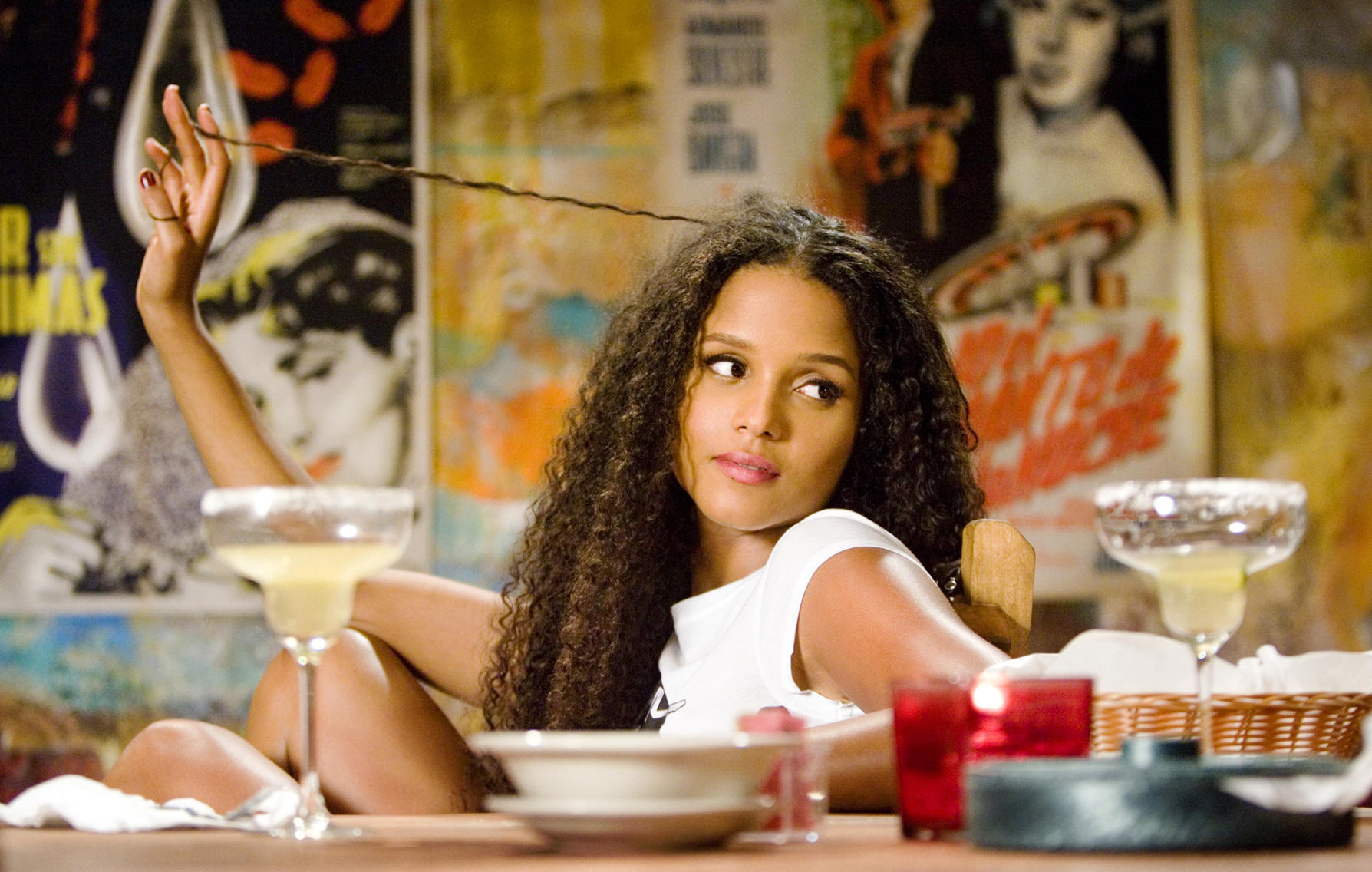

Sexy heroines, silent heroines: Sydney Tamiia Poitier in "Death
Proof", from "Grindhouse", and Molly Shannon in the current film "Year Of The
Dog" (with friend Pencil.)
(Photos: Dimension Films, Paramount Classics/Paramount Vantage, respectively.)
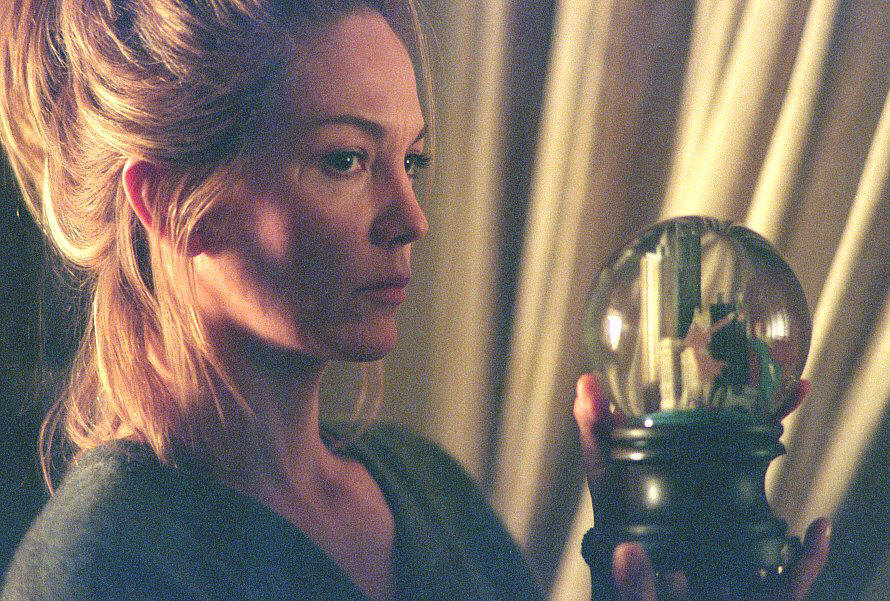
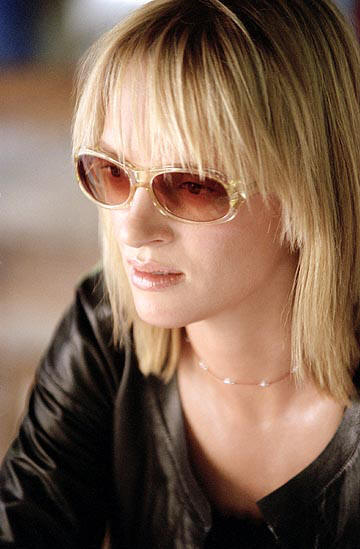
Scandalous heroines, sassy
heroines: Diane Lane in her Oscar-nominated role in "Unfaithful" (2002), and Uma
Thurman as The Bride in "Kill Bill Vol. 2" (2004).
(Photos: 20th Century Fox and Miramax Films respectively)
In another vein, while Linda Hamilton's Sarah Connor character in the 1991 film
"Terminator 2: Judgment Day" (also directed by James Cameron) may have been
thought of by some as a man-emulating, un-feeling character, Uma Thurman's Black
Mamba character, who sliced and diced her way through "Kill Bill Vol. 1", became
a heroine with a heart as The Bride in the much better "Kill Bill Vol. 2".
Quentin Tarantino directed those films, and directed "Death Proof" as well.
But the question becomes, if a woman displays similar physical prowess to men,
is she seen as the female version of a man, or just exhibiting qualities that
they as women have had all along? And how does one define "heroine" (or
"hero", for that matter)? Does it mean that a woman has to always be
physical to be heroic? To always prevail in the process? Strength
and power (and triumph) need not have anything to do with physicality or brawn.
On the contrary, on another level, Diane Lane exercises a more cerebral and
internal power and desire as an heroine (or anti-heroine), a fully-realized
woman in Adrian Lyne's 2002 drama "Unfaithful". She is a housewife who has
a husband in Richard Gere's businessman Edward Sumner, who loves her and their
son dearly, yet is cuckolded by Lane's Connie character who decides to embark
upon an affair with Olivier Martinez -- because she can. This capacity to
embark on an affair without any justification to do so troubled some men (and
women) to no end, presenting an unsettling feeling -- an all-too real reminder
that the human impulse predominates reason (also see Cate Blanchett's character
in "Notes On A Scandal", arriving on DVD in the U.S. during the week that this
essay was originally written.)
Interestingly enough, the very same scenario of Michael Douglas' Dan Gallagher
lawyer character having his proverbial cake (his onscreen wife Anne Archer) and
eating it too (with Glenn Close as his on-screen mistress) didn't trouble film
audiences nearly as much -- or at all -- in Lyne's 1987 cult-classic "Fatal
Attraction." The only thing that troubled many men in the audience
was that Mr. Lyne crafted such a terrifying story of the consequences of
adulterous male behavior on the big screen. The only thing that troubled
some women was the portrayal of Close's Alex Forrest as what they saw as a
marauding, psychotic career woman. In both Lyne films however, one theme
is consistent: the family that kills together stays together. And while
Alex Forrest as a character is not ostensibly a heroine, some may view her as a
fantasy in the minds of some jilted women who have been dealt one of the
unkindest cuts of all.
One woman who may be viewed as a heroine (at least to animals and animal lovers)
is Molly Shannon's Peggy in the Mike White film "Year Of The Dog". Unlike
Alex Forrest, she is no "bunny-boiler", as the British would say. On the
contrary, Peggy's an animal lover, not a fighter. ("Year Of The Dog"
opened in New York and Los Angeles on April 13, and expands to other American
cities a week later.) Peggy is lonely and isolated from other human
beings, but by choice, as she has long-ago lost faith in the capacity of human
beings to be sincere and good. She is at once compassionate and reckless,
trusting in the sanctity of animals, whom she sees as kindred souls who have no
axe to grind. When Peggy's longtime dog companion Pencil suffers, she
suffers even more deeply, and then proceeds to make one or two human beings (or
more) suffer as well. The more parallels between the film's juxtaposition
of human relationships with human-animal relationships, the more powerful and
urgent Mr. White's tragicomedy becomes.
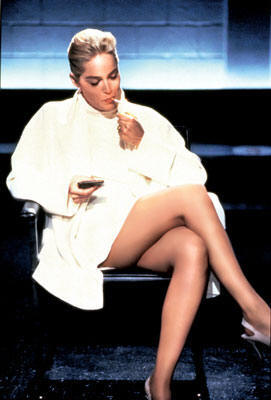
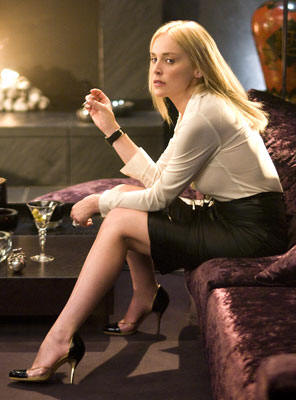
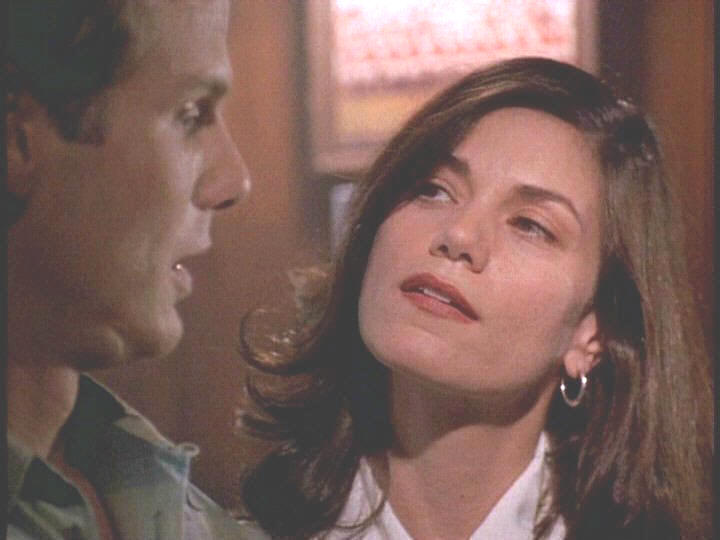
Anti-heroines and femme fatales of the recent past in film:
Sharon Stone in "Basic Instinct" (1992) and "Basic Instinct 2" (2006), and Linda
Fiorentino as one of the most memorable big
screen anti-heroes or heroines of the last quarter century and beyond, in "The
Last Seduction" (1994). (Photos: Columbia/Tri-Star; Sony Pictures;
Barnsholdtz Entertainment)
There are heroines and femme fatales of yesteryear in film such as Barbara
Stanwyck or Lana Turner in "Double Indemnity" or "The Postman Always Rings
Twice", American films from the 1940's, and to a large extent those examples and
others from American film history loom much larger than any recent film sirens.
Still, there are some films over the last ten or twenty years that have
memorable.
One example is Linda Fiorentino's brilliant portrayal of a single-minded
temptress and manipulator whose sexual power melts men in powerful positions in
John Dahl's "The Last Seduction." Fiorentino's Bridget Gregory/Wendy Kroy
is one of the most indelible and enduring characters in recent film memory, even
if the 1994 film itself got just a fraction of the box-office attention
worldwide that such films as "Basic Instinct" received. "The Last
Seduction", an independently-made film, is a much more intriguing study of women
and the power that they wield against underestimating men than anything in
"Basic Instinct" even suggests, let alone shows. As for Sharon Stone's
seminal vamp character Catherine Tramell in Paul Verhoeven's "Basic Instinct" in
1992, she was more an anti-heroine than a villain to Michael Douglas' police
detective character, whom in the unrated DVD version of the film is seen raping
his police psychiatrist (played by Jeanne Tripplehorn.) What does that
make Mr. Douglas' onscreen character, besides an obvious rapist and villain (and
after that question is answered should anything else matter?)
Mr. Verhoeven cultivates a heroine out of Ellis/Rachel, the lead character in
his current film "Black Book" (which opened this month in the U.S. and has
already played in the director's home country of Holland last year.) The
original Dutch title of the film, "Zwartboek", the film is an epic drama set
during the closing years of World War Two and examines the real-life betrayal of
Dutch Jewish citizens by their fellow Dutch compatriots. Carice Van Houten
stars as a Dutch-born Jewish citizen, a dual character who spies on the Nazis
and also betrays her own people in the Dutch Resistance as well. Van
Houten's character suffers great pain and humiliation at one point, but uses her
brain as well as her beauty and sex to prevail, though at a heavy cost -- and
without firing a gun. By the time the film is over Ellis has been through
hell and has the scars to prove it. The one thing that tarnishes "Black
Book" however, is its music score (and for that matter the scenes book-ending
the two-hour, 21 minute film.)
Jodie Foster has portrayed anguished heroine characters, such as Sadie, a rape
victim in Jonathan Kaplan's "The Accused" (is there anything "heroic" about
being raped???? Of course not. The heroism is in her courage and
steely resolve after surviving her tortuous ordeal), and as Clarice in "The
Silence Of The Lambs", directed by Jonathan Demme. Both roles won
Foster lead acting Oscars, in 1987 and 1992 respectively. (This September
in the U.S. audiences will get to see Foster in the appropriately-titled "The
Brave One", where she plays a vigilante that Charles Bronson would have been
proud of.) And in "Little Children", Kate Winslet's Oscar-nominated
character is a heroine, even if she doesn't necessarily fit the "traditional"
hero mold. As Sarah, she finds her voice in a hypocritical suburban town
in Massachusetts, which takes courage and bravery -- especially when you have a
fear-ravaged, judgmental and morally flawed close-knit community on top of you
and in every scrap of your personal business.
Documentary filmmaker Jennifer Fox captures heroism in women by allowing an
intimate look into the lives of several women around the world in her epic
six-hour documentary "Flying: Confessions Of A Free Woman", which opens in New
York City on July 4 at the Film Forum and was shown earlier this year at
Sundance. Ms. Fox un-self-consciously films herself, and the women she
converses with take turns with the filmmaker's camera filming themselves,
first-person style. The women engage deeply in conversations about the
meaning of womanhood, sisterhood, daily travails, experiences and issues with
the opposite sex, and other personal ups and downs with relationships, sexuality
as a woman in a male-controlled world, family, expectations and many other
matters. The bottom line is that in "Flying", women get to tell their
story in an uninhibited, uncensored way. They discuss their hopes, dreams,
frustrations, pains, joys and triumphs. The courage and openness shown by
the women involved, and their vulnerability as they talk about intimate
situations and deeply affecting events in their lives would arguably make the
women heroines for simply having the courage and fearlessness to tell their
stories, stories that some would rather not listen to.
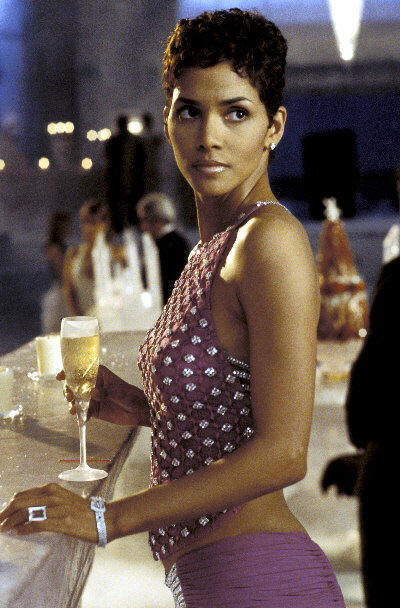

Heroine deux: Halle Berry as Jinx
in "Die Another Day" (2002), and as Storm in "X-Men: The Last Stand" (2006).
Berry also played the title role in the film "Catwoman" (2004).
(Photos: MGM/UA; 20th Century Fox)
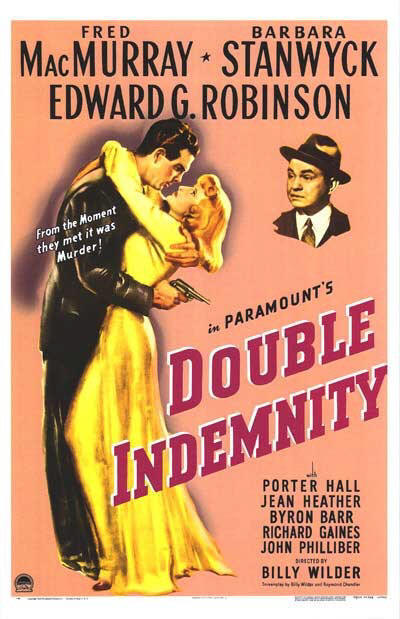
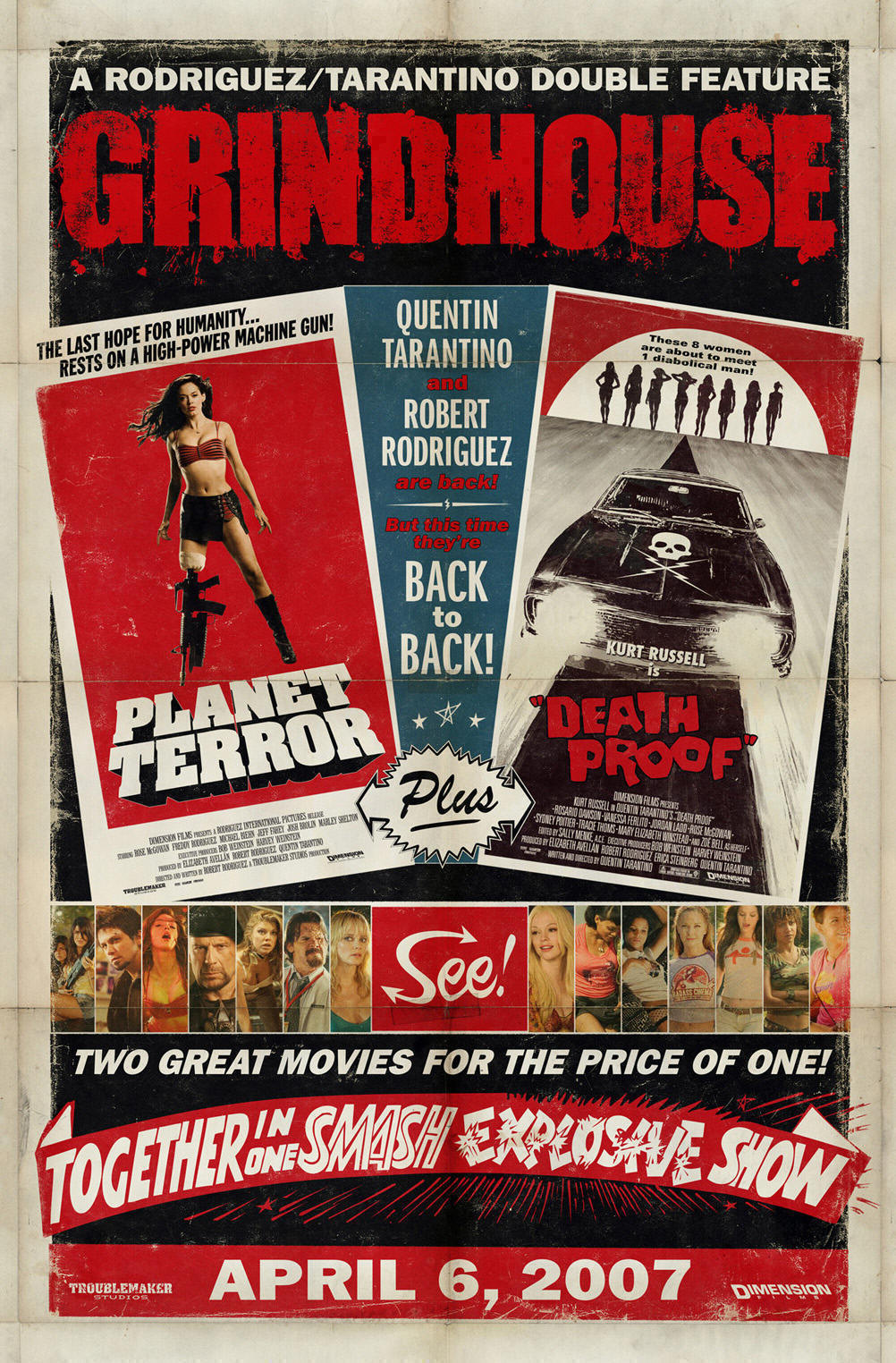
Yesteryear's anti-heroines and today's heroines: The poster for
the 1944 film classic "Double Indemnity" featuring Barbara Stanwyck's
electrifying role, and the poster for the recent film double-bill "Grindhouse",
which features a one-legged assassin with a dangerous leg for a weapon (see
poster "Planet Terror" above.) Photos courtesy: Paramount; Dimension
Films/The Weinstein Company
Finally, heroism is found in compassion and comfort of women in the film
"In The Land Of Women" (opening across North America on April 20.) A group
of women provide both comfort and complexity for a young man (played by Adam
Brody) slowly recovering from the heartbreak of having a relationship ended by
the woman he loves. He has to take care of his ailing grandmother in
Michigan, and he leaves Los Angeles to do that, getting away from the location
of the heartbreak in the process. The pain of that ordeal is never too far
away however, until the passion and faith of one of the new women he meets in
his new surroundings makes him forget. Jonathan Kaplan also directs this
film, which also features Meg Ryan.
Of all the heroines however, women like Sharon D. Allen can be counted.
Ms. Allen is a sergeant in the Ohio National Guard, and she can currently be
seen on both the big screen now and the small screen (beginning on April 16 on
PBS television) in North America, in the documentary "Operation Homecoming:
Writing The Wartime Experience", a film by Richard E. Robbins which chronicles
U.S. soldiers who have served in Iraq and write about their feelings and
reflections of the experience of being there. Women and men alike find
hope and pain amidst despair in the country that has been besieged, and Ms.
Allen reveals that if one serves in Iraq and returns home to America without any
issues whatsoever, she would assiduously question such placidity. Ms.
Allen is real, and although she speaks with a sanguine demeanor, possesses an
inner strength and calm, yet plain-spoken manner that the fictional on-screen
heroines lack in comparison. The ordeals and experiences that Ms. Allen
and her fellow cohorts have are expressed onscreen in urgent, compelling and
vivid fashion. Mr. Robbins' film is one of the unique documentaries on the
subject of Iraq, one which audiences around the world, but especially in the
United States, need to witness.
So right now at your local theater or multiplex there are women on the big
screen taking charge -- a new wave of women -- that are neither buffoons (nor
stereotypes -- for the most part), but are figures who possess or take on heroic
qualities in a variety of ways. Whether heroines or anti-heroines, seeing
more of them in American films in particular, as well as in cinema in general,
is a more than welcome sight.
Originally published on April 15, 2007.
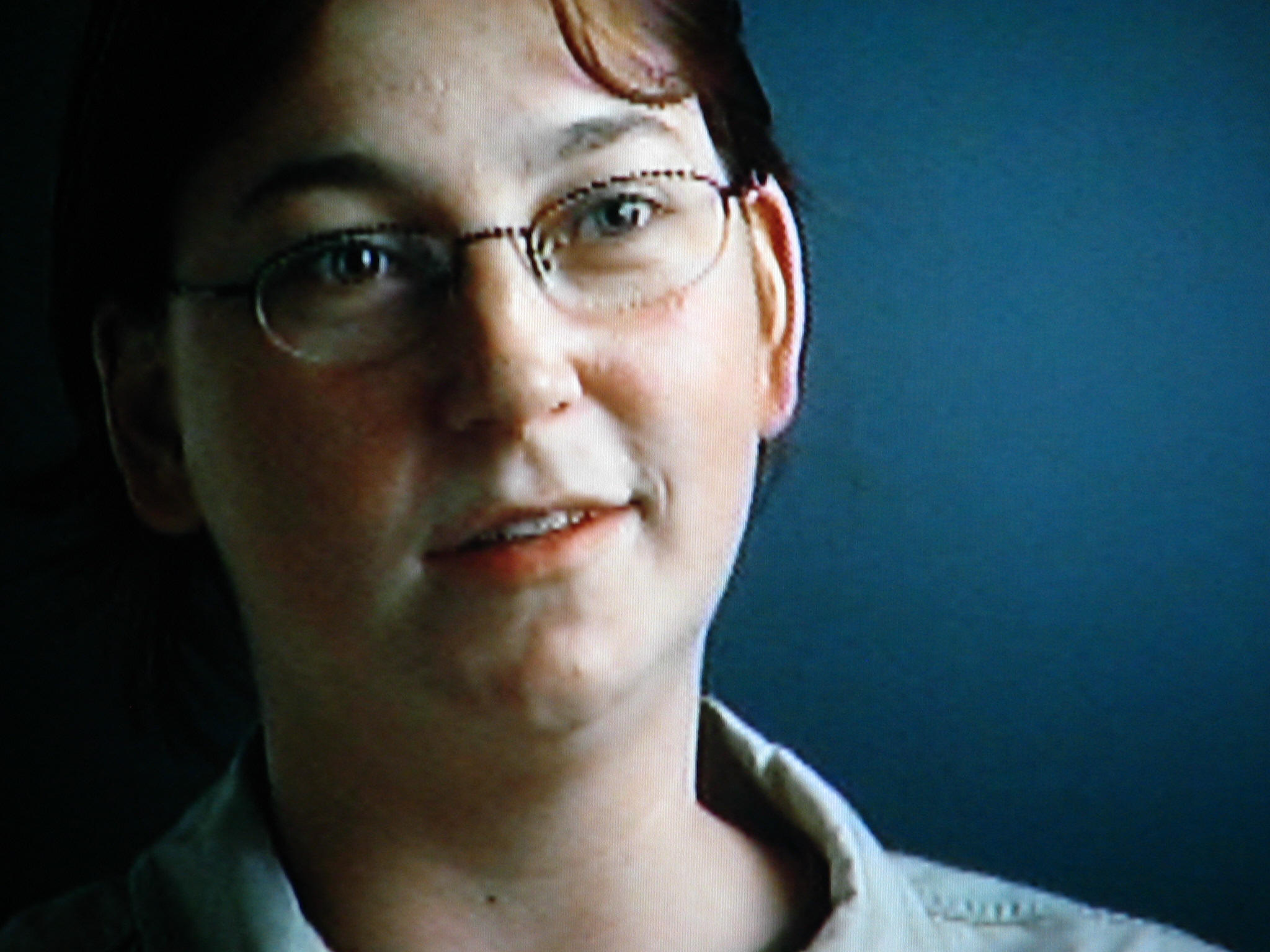
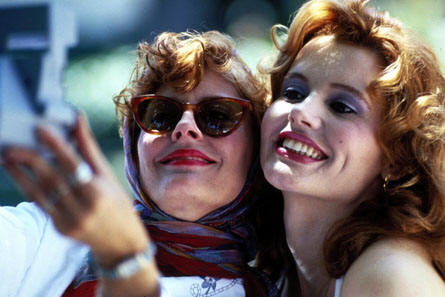
Soldier heroines and "subversive" heroines: Sharon D. Allen,
Sergeant, Ohio Army National Guard in the documentary "Operation Homecoming:
Writing The Wartime Experience"; Susan Sarandon and Geena Davis as the title
characters in "Thelma & Louise". (Photos: The Documentary Project; MGM/UA)
![]()